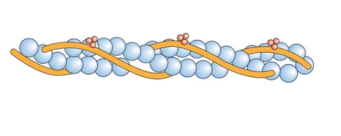
Mollusks include clams, mussels, oysters, and scallops. Shellfish are one of the major allergens. People allergic to shellfish may suffer from asthma, nose irritation, atopic dermatitis, and migraines. In severe cases, it may be more likely to cause seizures or anaphylaxis. Lifeasible offers multiplex PCR assays for rapid allergen detection in mollusks. The development of a multiplex PCR assay service could provide benefits to allergy sufferers, and seafood manufacturers in the prevention, labeling, monitoring, and regulation of the allergen myosin in processed mollusk shellfish.
Tropomyosins present in mollusks are the most common allergens in humans and can cause excessive immune responses. To detect tropomyosin allergens in mollusks, a multiplex PCR assay combined with capillary electrophoresis was developed to detect tropomyosin genes in oysters, mussels, abalone, and clams, as well as 18S rRNA genes in eukaryotes. Among protein-based allergens, tropomyosin is described as a significant crustacean allergen in shrimp crustaceans. It is present in muscles and regulates muscle contraction in vertebrates and invertebrates. Due to its functional importance, the levels of tropomyosin in muscle are higher than those of other allergens in crustaceans and mollusk shellfish.

Lifeasible can develop multiplex PCR assay services and apply them to detect allergenic mollusk species. The following is a procedure for monitoring tropomyosin allergens in mollusks using multiplex PCR.
Select the type of mollusk to be tested and collect the fraction to be tested.
Genomic DNA is extracted using a DNA extraction kit, and the purity and concentration of the extracted DNA are measured by a UV spectrophotometer to confirm the integrity and quality of the extracted DNA. Genomic DNA from samples with an A 260 / A 280 ratio in the range of 1.8-2.0 was used as PCR templates.
Molluscan proto-myosin coding sequences, including the target species, were compared to find specific sequences for each species.
PCR-only amplification of the target allergen was performed to confirm the primer specificity and sequence of the amplified DNA.
Each plasmid DNA containing the amplified PCR product is extracted using the Plasmid DNA Purification Kit, and the sequence of the PCR product is confirmed by using the Basic Local Matching Search tool in the NCBI database.
Amplification by multiplex PCR was performed using the same conditions and instrumentation as for PCR alone.
In addition to detecting this allergen, we are developing other types of detection services.
Lifeasible provides quality life science solutions for enterprises and research institutes to help life scientists solve problems in the process of R&D and technology transformation, improve research efficiency and accelerate the acquisition of research results. We have strong technical service strength and a professional after-sales service team. In the future, we will continue to uphold the spirit of never stopping, keeping pace with The Times, and closely following the development trend of the life science industry to provide users with better products and quality services. If you are interested in our services, or if the service you want is not listed, please feel free to contact us, and we will get back to you as soon as possible.
Reference
Lifeasible has established a one-stop service platform for plants. In addition to obtaining customized solutions for plant genetic engineering, customers can also conduct follow-up analysis and research on plants through our analysis platform. The analytical services we provide include but are not limited to the following:
Get Latest Lifeasible News and Updates Directly to Your Inbox
Adaptive Evolutionary Mechanism of Plants
February 28, 2025
Unraveling Cotton Development: Insights from Multi-Omics Studies
February 27, 2025